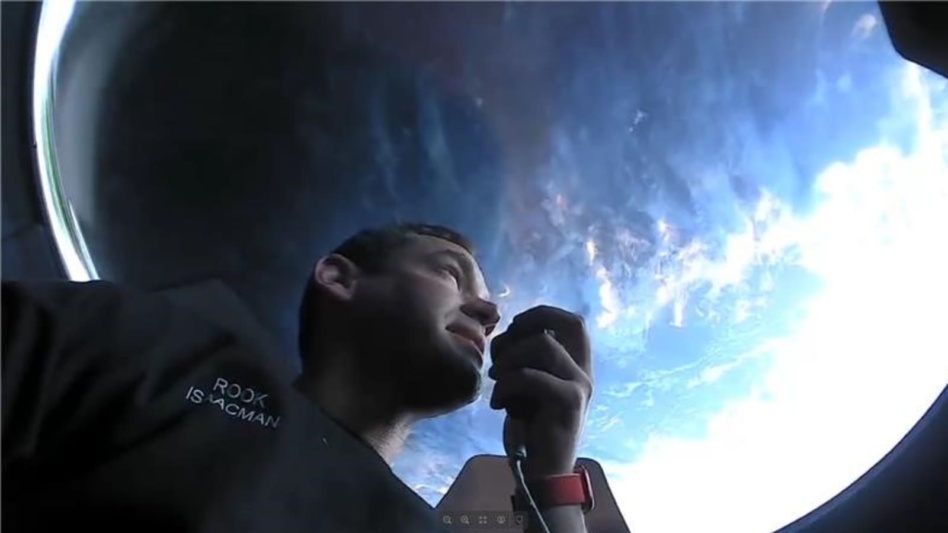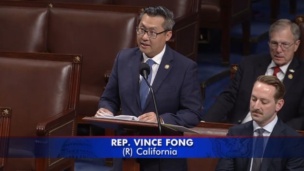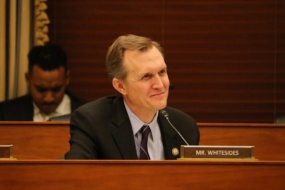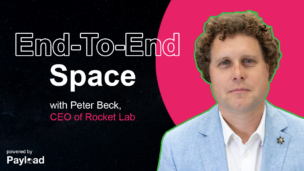On Wednesday, when reporting Q3 earnings, payment processor Shift4 announced a five-year strategic partnership with SpaceX’s Starlink. The deal came as a surprise, and Shift4’s stock (NYSE:FOUR) surged. But Jared Isaacman, the company’s CEO, is no stranger to SpaceX. Isaacman was financier and commander of the all-civilian Inspiration4 mission, which took place in September.
Payload spoke to Isaacman—via email—the day of the Shift4/Starlink announcement.
When did you realize that space could be a standalone vertical for a payment processing business? That strikes me as an unthinkable proposition until fairly recently.
There is no question there will be a space economy and it will be powered by software. Shift4 is an integrated payments company. Our job is to take the complexity out of the process to deliver a seamless commerce experience—and that can be in restaurants, hotels, stadiums, healthcare and more, whether they are here on Earth or elsewhere.
To what extent is working with a DTC space ISP (my choice of words for Starlink) similar or different from working with big customers in your main verticals?
Our job is to take the complexity out of commerce regardless of the industry types we serve, so we’re taking a similar approach as we for other verticals.
Given the many markets and geographies that Starlink will serve, will working with them add new complexitie, from either a technical or political perspective? Credit cards, for example, have lower penetration rates in other countries, vis-a-vis the US.
We want to help our customers do business with their customers regardless of the payment method. In certain geographies, traditional credit or debit cards would be most prevalent but in other parts of the world APMs [Alternate Payment Methods] are more common. We will ensure our merchant relationships have the full spectrum of payment acceptance capabilities needed anywhere in the world.
The focus of Inspiration4 was not your day job, but rather the philanthropic component and raising funds for St. Jude. That said, has the mission had any noticeable impacts on your company? If so, in what ways?
I tried to ensure the mission was focused on my very inspiring crew members, the amazingly talented people at SpaceX that are changing the world, and a very important cause in St. Jude Children’s Research Hospital. That stated, the mission has raised my profile in somewhat unexpected ways, including new opportunities for Shift4.
Had Inspiration4 not happened, do you think Shift4 and SpaceX would be working together?
It’s really impossible to say as I believe we would have proven the best solution for this need regardless, but it certainly helped.
Broadly speaking, how do you see the space economy taking shape over the next decade? Put another way, how would you describe our current space zeitgeist?
People are going to be working and exploring in space. I think people get worked up on the term “space tourist”. In reality, I don’t think there will be a lot of people paying to look at the Earth from orbit solely for the sake of sightseeing. I think as costs to access orbit come down, more countries will have a presence in space, more companies will have a presence in space to support research, more industry will be in space and ultimately more people will be in space.
Have you tried the Sam Adams Space Craft IPA? If you have, how is it?
Not yet, I believe the first batch is out next week.
How you feeling on that Eagles bet?
Not great, but it was really a joke I made with my brother and not something I was taking seriously. I am an Eagles fan though and I hope they pull it off. It will mean a really nice donation for St. Jude.




